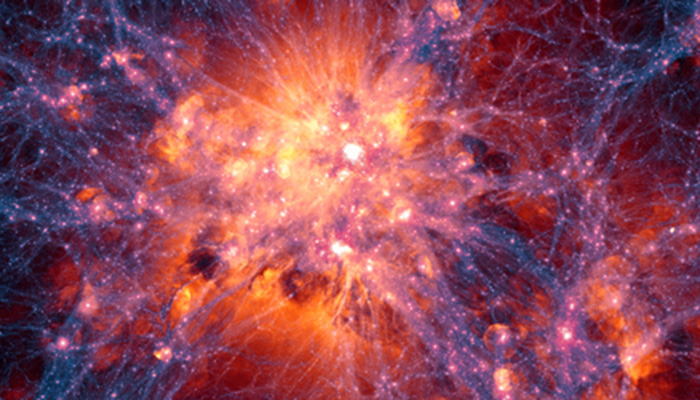Research Topic Dark Matter
Our group is conducting research at the Karlsruhe Institute of Technology (KIT) to unravel the nature of Dark Matter, one of the greatest mysteries in the Universe. Even though Dark Matter manifests itself in many astrophysical and cosmological observations, its particle nature remains unknown so far. Since a Dark Matter particle requires very special properties, none of the known elementary particles can be responsible for Dark Matter. The detection of Dark Matter particles is also closely linked to physics beyond the Standard Model (BSM). Many BSM models have been proposed, with various and very distinctive Dark Matter candidates. One possible model for such an extension of SM is supersymmetry, in which the lightest supersymmetric particle would be an excellent candidate for dark matter, namely a weakly interacting massive particle (WIMP).
A promising method for the discovery of WIMPs is the search for elastic scattering of WIMPs from the galactic off an atomic nucleus of knwon matter. Such scattering processes are extremely rare and leave only tiny signatures in highly sensitive detectors. These processes are being searched for worldwide with ever more precise measuring methods.
We are conducting intensive research and development (R&D) for the current search for dark matter as well as for the next generation of experiments. The Dark Matter Group at the IAP of KIT is a member of the XENON Collaboration (since 2019), participated in the construction of the XENONnT experiment and contributes to its operation and the data analysis. Since 2018, we are involved in the development of the follow-up experiment DARWIN. With the foundation of the XLZD collaboration in 2024, our R&D activities within DARWIN are now part of the planned XLZD experiment.
Since 2022 we contribute to the design and studies towards the DELight experiment. From 2005 to 2020, we have significantly contributed to the setup, operation and data analysis of the EDELWEISS experiment.






